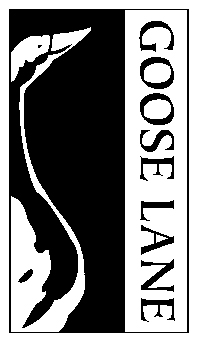Sometimes you read a book and it sticks with you. Even after you close it, put it away on the shelf, and move on to the next book - that first book just won't seem to go away. Scott Fotheringham's The Rest is Silence is that book.
Taking place in the backwoods of Nova Scotia, a man decides to withdraw from the hustle and bustle of the world and live off the land. However, as he retreats from society, news reports begin to declare a global environmental catastrophe. Someone has let loose on the world a genetically modified strain of bacteria that gets rid of plastic - but at what cost?
At a time when environmental degradation and restrictions on plastic bag usage is changing the way we view plastic - Fotheringham's fictional text hits a realistic note with readers. The Rest is Silence is the winner of the H.R (Bill) Percy Novel Prize, and a finalist the Amazon.ca First Novel Prize, the Jim Connors Dartmouth Book Award and the Ottawa Book Award.
Here is some of the buzz from people who haven't been able to put The Rest is Silence down:
"This is dystopian CanLit at its finest, intimate yet epic; it's a tough combination to pull off, but Fotheringham does it incredibly well..." — Globe and Mail
"I will remember this novel: where I was when I read it and how it made me feel so immediate; and I will read it again. ... The language is textured, almost poetry or music, like velvety moss on a rock. One could read it aloud and never stumble over a misplaced word. Sink into this book: it is a midnight skinny dip, a bonfire, a shooting star." — Scene
"A beautiful atmospheric novel of the sort that genre fiction needs to see more of. ... a natural continuation of Margaret Atwood's extrapolation of Canadian Gothic into speculative fiction. ... This is good stuff." — aescifi.ca
With a PhD is Molecular genetics from Cornell University, Fotheringham is well cut out to write about a genetically modified bacteria which would potentially devour all plastic. In an interview with Goose Lane Editions earlier this year, Fotheringham explained how he created a character who hates plastic, his thoughts on how plastic affects the environment, and his thoughts on the ending of The Rest is Silence. Click here to find Fotheringham's answers to the questions alluded to and many more!
Here's a sneak peak into The Rest Is Silence:
"I came to this school to learn how to rid the planet of plastic," Benny said. "When our grandparents were kids there were no plastic bags. No yoghurt containers, no six-pack rings. Nothing."
"They were plastic virgins, eh?"
She smiled. There were synthetic resins produced back then. Bakelite pot handles and telephones. But that was like holding hands for plastic virgins."
"They had yet to be screwed by plastic."
She liked that. "Then, before World War II, the Germans invented polystyrene and polyvinyl chloride. DuPont followed with nylon. Then acrylics, polyethylene, polyurethane. During the war the British made polyethylene terephthalate. It's used to make these" She tapped the back of a fingernail on the ginger ale bottle on the table. "Now we have polypropylene underwear and fleece jackets made out of recycled bottles. Our birthright is seventy pounds of plastic garbage, hanging around our neck."
In today's world of ecological uncertainty, fear of pollutants such as plastic raise the alarm for many individuals. Although it is a work of fiction, Fotheringham's novel may provide a look into the not-so-distant future. If you haven't already, make sure to pick up a copy of Scott Fotheringham's The Rest is Silence.
